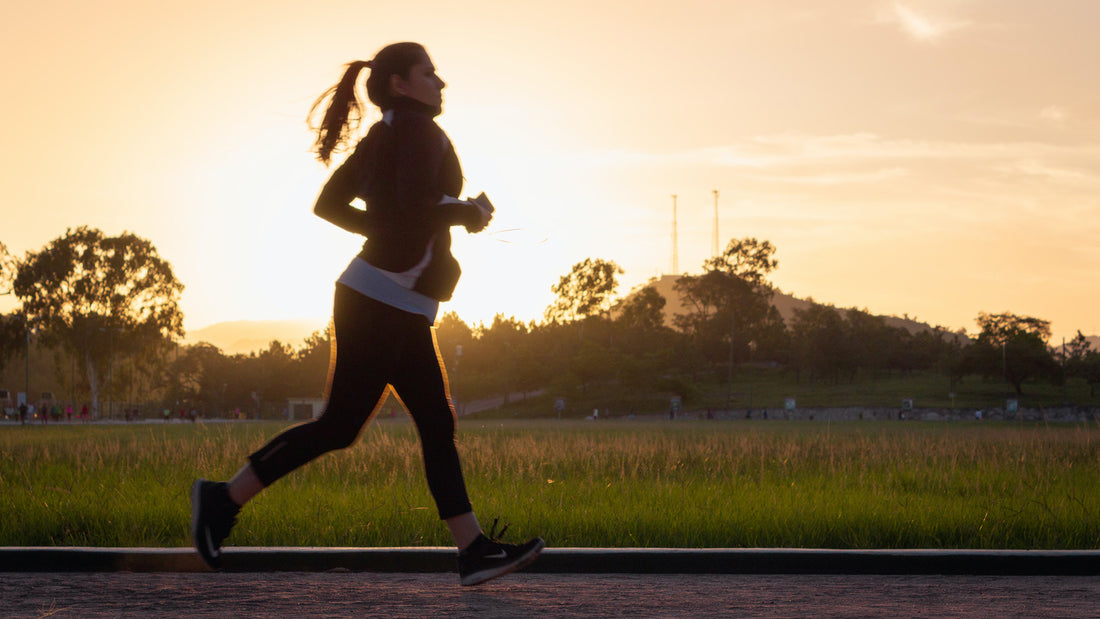How does CBD interact with our bodies, and could it help with muscle fatigue and muscle recovery?
CBD is making waves around the world, and one of the reasons many fitness enthusiasts are jumping on board the CBD train is muscle fatigue and muscle recovery. Of course, when you work out or compete in any sport, you get tired and sore. But, it’s all part of physical exercise and recovery.
However, the speed at which your body recovers is often what determines how hard you can push yourself in training or your next event. The faster you’re ready to train, the sooner you can get back to working out and building muscles. Conversely, if you have a long period between workouts, the positive gain from those workouts may be reduced.
One of the many ways people are helping to overcome muscle fatigue and soreness is CBD. In the following article, we’ll take a look at what CBD is, how it works, how it interacts with your body, and whether or not it could help you to recover from muscle fatigue and soreness.
What Is CBD?
Cannabidiol (CBD) is one of the two dominant cannabinoids found in the cannabis sativa plant, with the other dominant cannabinoid being tetrahydrocannabinol (THC). There are over 100 different cannabinoids that scientists and researchers have identified so far contained in hemp and marijuana.
Almost all CBD products available commercially are made using CBD, which is sourced from hemp plants, not marijuana, the other primary type of cannabis sativa plant. That’s because hemp is naturally low in THC while high in CBD. The popularity of CBD is primarily thanks to the 2018 US Farm Bill, which legalized products made from hemp which contain less than 0.3 THC at a federal level.
The 2018 Farm Bill opened the floodgates when it comes to CBD products in the United States. From very few available products, we’re now seeing more and more companies entering the popular and lucrative CBD market.
How Does CBD Interact with Your Body?
Inside all of us, regardless of whether we’ve tried CBD or THC, is something known as the Endocannabinoid System (ECS). The ECS is a complicated cell signaling system that scientists believe is responsible for regulating bodily functions such as inflammation, sleep, mood, appetite, and reproduction.
Our bodies naturally produce endocannabinoids such as anandamide (AEA) and 2-arachidonoylglyerol (2-AG). However, Phytocannabinoids (cannabinoids from plants) such as CBD can step in and fill the roles of these endocannabinoids.
The ECS is made up of a series of receptors (CB1 and CB2) which are all linked together and spread throughout the body. Although most receptors are located in the brain and central nervous system. It’s because of these receptors and how they work that CBD is so versatile and has so many different effective delivery methods.
Can CBD Assist with Muscle Recovery and Fatigue?
When you work out, lift weights, or do any strenuous physical exercise, it can cause micro-tears in your muscles. As these tears repair, they rebuild stronger. It’s all part of the process of building your muscle and working out. However, in between the tear and the repair, your body floods the area with inflammatory bodies.
The faster you can reduce the inflammation, and the time between tear and repair, the sooner you can get back to working out and training, and the better your fitness regime will progress. Recovery time is one of the most significant factors which influence how quickly you can get in shape and also how you get in shape.
A lot of studies into CBD have focused on its natural anti-inflammatory properties. This is where CBD comes into its element. CBD could potentially reduce inflammation in both post-recovery and as part of a well-rounded fitness regime.
It makes sense that if you can reduce the inflammation surrounding sore or fatigued muscles, you’ll be able to get back to working out sooner or competing if you’re a professional or semi-professional athlete. It’s one of the big reasons why so many professional athletes are using or endorsing CBD products. Still, you don’t have to be a professional athlete to access the potential benefits which CBD may offer.
However, it’s important to note that how your body reacts to CBD and how it process it can be very different from someone else. No two people or their bodies are alike, and CBD works differently.
While we know a lot about CBD, there is still a lot that we’re learning. There have been a lot of studies into CBD but not a lot of clinical trials. As the popularity of CBD continues to grow, we’ll see more money and resources committed to clinical trials and uncovering everything that this wonderful natural compound has to offer!
Can CBD Help to Recover from Muscle Fatigue? – Conclusion
There you go! Everything you wanted to know about CBD and how it could potentially help you recover from muscle fatigue and soreness. While the initial studies into CBD and recovery are very exciting, more clinical trials are needed before we can make any definitive claims about CBD or its benefits.
It’s important to note that how you react to CBD and how someone else reacts to CBD may be very different. No two people are the same, and the effects of CBD can vary greatly. If you have any existing health or medical, always speak to your doctor or healthcare professional before trying CBD, as it can interact with some pharmaceutical medications affecting how quickly or slowly your body processes them.
If you have any questions about CBD, how long CBD stays in your body, or would like to learn more about CBD, please don’t hesitate to contact us directly. Our professional and friendly team is happy to assist you with your CBD-related questions.

